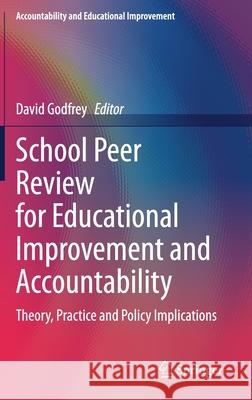School Peer Review for Educational Improvement and Accountability: Theory, Practice and Policy Implications » książka
topmenu
School Peer Review for Educational Improvement and Accountability: Theory, Practice and Policy Implications
ISBN-13: 9783030481292 / Angielski / Twarda / 2020 / 289 str.
School Peer Review for Educational Improvement and Accountability: Theory, Practice and Policy Implications
ISBN-13: 9783030481292 / Angielski / Twarda / 2020 / 289 str.
cena 603,81
(netto: 575,06 VAT: 5%)
Najniższa cena z 30 dni: 578,30
(netto: 575,06 VAT: 5%)
Najniższa cena z 30 dni: 578,30
Termin realizacji zamówienia:
ok. 16-18 dni roboczych.
ok. 16-18 dni roboczych.
Darmowa dostawa!
Kategorie:
Kategorie BISAC:
Wydawca:
Springer
Seria wydawnicza:
Język:
Angielski
ISBN-13:
9783030481292
Rok wydania:
2020
Wydanie:
2020
Numer serii:
000795140
Ilość stron:
289
Waga:
0.61 kg
Wymiary:
23.39 x 15.6 x 1.91
Oprawa:
Twarda
Wolumenów:
01
Dodatkowe informacje:
Wydanie ilustrowane











